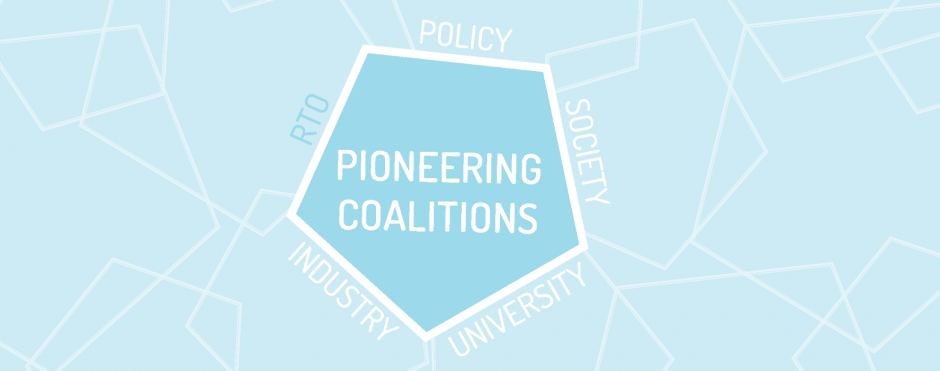
JERRI User Brief: Applied Research Organisations
Pioneering actors coalitions are emerging to deliver solutions to societal Problems using responsible innovation approaches. There is a huge opportunity for applied research organisations (RTOs) like TNO and Fraunhofer to become prime catalysts of this responsibility transformation and thereby boost their relevance in innovation ecosystem and renew their “license to operate from society”. This page answers three important questions related to RRI and RTOS.
WHY IT IS IMPORTANT FOR RTOS?
Because it boosts excellence by:
- Generating new ideas by harnessing a greater diversity of perspectives
- Finding better solutions by systematically reflecting on impacts
- Creating new opportunities by applying open business models
- Strengthening internal governance by integrating ethical reflection
Because our stakeholders request it
- Orienting research and innovation systems towards societal needs is fast becoming a dominant paradigm of research and innovation policies. Not only the EC but also many national governments have ad-opted RRI fostering measures e.g. to orient innovation towards the SDGs, requesting open access publications, ethical reviews or gender balanced perspectives.
- A growing number of industry clients request our support in making positive contributions to societal challenges.
- Citizens, among them many of our em-ployees expect tax funded research and innovation to address global challenges.
Because it is a unique opportunity
- RTOs can play a crucial role in fostering the emergence and stability of responsibility pioneering coalitions.
- Due to their close linkages to industry, policy, academia and other societal actors a shift in RTOs practices will “draw in” many others.
All in all, by being part of these coalitions we will secure sustainable long-term suc-cess and renew our collective social license to operate from society.
WHY WE NEED SPECIFIC APPROA-CHES FOR RTOS
RTOs face specific challenges in moving to-wards “science with and for society”. In JERRI, we found that we need to find RTO specific solutions that allow us to align RRI goals with our traditional missions of contributing to research excellence and competitiveness in our respective innovation systems - goals which are also highly relevant to societies’ wellbeing. Also, as RTOs we cannot build our efforts on public funding alone. Rather we need to work together with our clients in industry and society to find “responsible busi-ness models” that are benefiting all sides. RRI paradigms such as “open science” and “citizen participation” need to be adapted to the RTO context to unfold their full potential.
Together we need to learn to create impact that is socially desirable, sustainable and ethically acceptable AND fits with our value creation models.
HOW YOU CAN BENEFIT FROM THE JERRI EXPERIENCE
1. Test and use the JERRI tools andapproaches for co-creation of responsible research and innovation projects:
- A canvas tool for assessing societal impacts Guidelines for identifying ethical issues and gender aspects
- A workshop format for supporting value based decision making
- A Citizen-Cafe format supporting citizens to put societal needs forth to science
- An online game for thinking through ethical dilemmas
- A repository for the publication of research data
- A toolbox with good practice examples for advancing gender equality in research organisations
- Six business models for creating value through open science approaches
- Fact sheets supporting researchers and their industry partners in integrating Open Access and Open Data into contract negotiations
2. Engage with us in a discussion on the lessons we learned in the process:
- Don’t just add the new practices but proac-tively engage with established goals and narratives in the organization and position the new practices therein
- Frame the institutionalization of RRI as a process of organizational change
- Develop and use SMART 1 goals, to organize funding and support
- Establish support within the organization, both formal and informal
- Actively involve change agents, from both the inside and the outside Organize a flexible process, to seize oppor-tunities and deal with contingencies
- Exchange lessons learnt within the project team and with others
- Adapt the process to your organizational context for each RRI aspect
- Create trusted spaces to allow deep diffu-sion of RRI mindsets and practices into the organizational culture
- Find the right balance between ambition and realism

This project has received funding from the European Union's Horizon 2020 research and innovation programme under Grant Agreement No. 709747.
